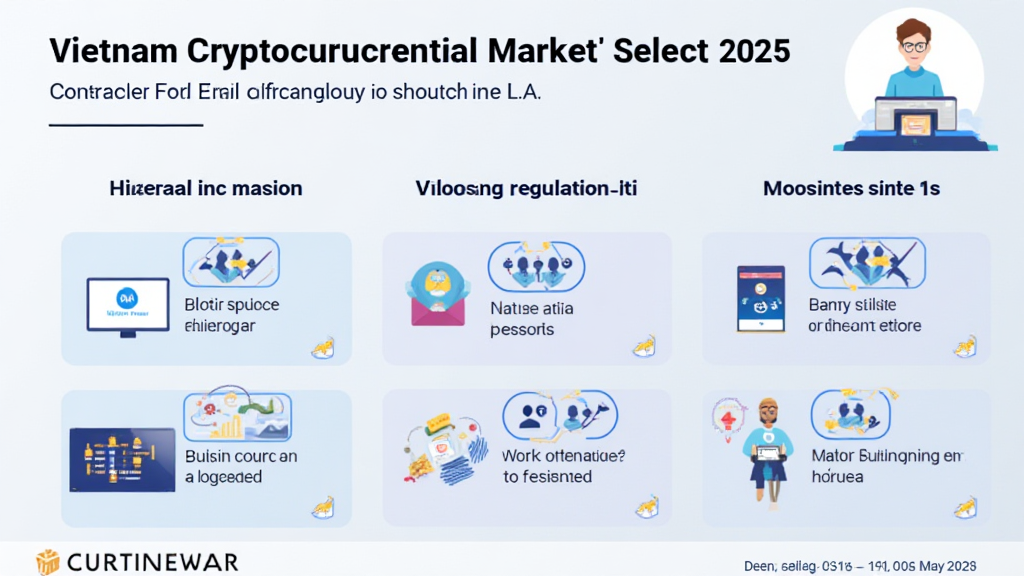Introduction
With over $4.1 billion lost to DeFi hacks and scams in 2024, the need for robust Vietnam crypto regulations 2025 updates cannot be overstated. As Vietnam’s digital asset landscape evolves, it’s essential for investors, businesses, and enthusiasts to stay informed about the regulatory framework set by the government. This article aims to provide a comprehensive overview of the latest developments in Vietnam’s crypto regulations, exploring key aspects such as compliance requirements, emerging technologies, and anticipated changes in legislation.
The Current State of Cryptocurrency in Vietnam
Vietnam has become one of the fastest-growing cryptocurrency markets in Southeast Asia. As of 2023, approximately 16 million Vietnamese have invested in crypto assets, representing 20% of the adult population. The growing interest is fueled by a young population and increasing access to technology. However, the regulatory landscape remains ambiguous, leading to a pressing need for updates. The government has taken steps to rein in the sector, partly due to concerns about scams and fraud.
Growth of the Vietnamese Market
- Market growth rate: 350% over the past two years
- Increased participation in DeFi: 25% of users engaged
- Rising interest in NFTs: 15% of crypto users invest in NFTs
The Importance of Regulatory Frameworks
Establishing clear and fair cryptocurrency regulations is crucial for both protecting consumers and fostering innovation. Like a bank vault for digital assets, a well-structured regulatory framework can help mitigate risks associated with volatility and fraud. Investors need assurance that their investments are safe and secure.

Key Regulatory Focus Areas
- Consumer Protection: Regulations will aim to safeguard investors from potential scams.
- Anti-Money Laundering (AML): Regulations will require businesses to implement stringent AML measures.
- Tax Compliance: Clear guidelines will be established for tax reporting on crypto transactions.
Expected Changes in 2025
Vietnam’s Ministry of Finance is currently drafting regulations that are expected to be finalized by mid-2025. These regulations are anticipated to cover several critical aspects of digital assets, setting the legal framework for the industry.
Proposed Regulatory Changes
- Licensing Requirements: Cryptocurrency exchanges will likely need a license to operate.
- Consumer Education: Programs to educate consumers about potential risks and safe practices.
- Increased Transparency: Businesses may be required to provide more transparent reporting and disclosures.
How to Stay Compliant
For businesses operating in Vietnam’s crypto space, understanding and adhering to regulations will be paramount. Here’s what you can do to ensure compliance:
Steps to Compliance
- Stay Informed: Regularly check updates from official government sources.
- Engage Legal Experts: Consult legal professionals specializing in crypto regulations.
- Invest in Technology: Implement tools and platforms that facilitate compliance with new regulations.
Conclusion
As the Vietnam crypto regulations 2025 updates unfold, stakeholders must remain proactive in adapting to the changing landscape. By understanding the forthcoming legislative framework, businesses and consumers can navigate the opportunities and risks that lie ahead. It’s a vital period for Vietnam’s digital asset market as it aims to align with global standards while nurturing local innovation.
Key Takeaways
- Vietnamese crypto market rapidly growing; regulations are essential for safety
- 2025 will bring significant updates impacting businesses and users
- Compliance is crucial; seek expert guidance and stay informed
For more insightful updates, visit hibt.com and explore our various resources.
Remember, these changes are still being formulated. Consult local regulators for tailored advice based on your specific situation. Not financial advice; always seek professional guidance.
Written by Dr. Minh Nguyen, a renowned blockchain researcher with over 15 published papers and experience auditing multiple high-profile projects.





